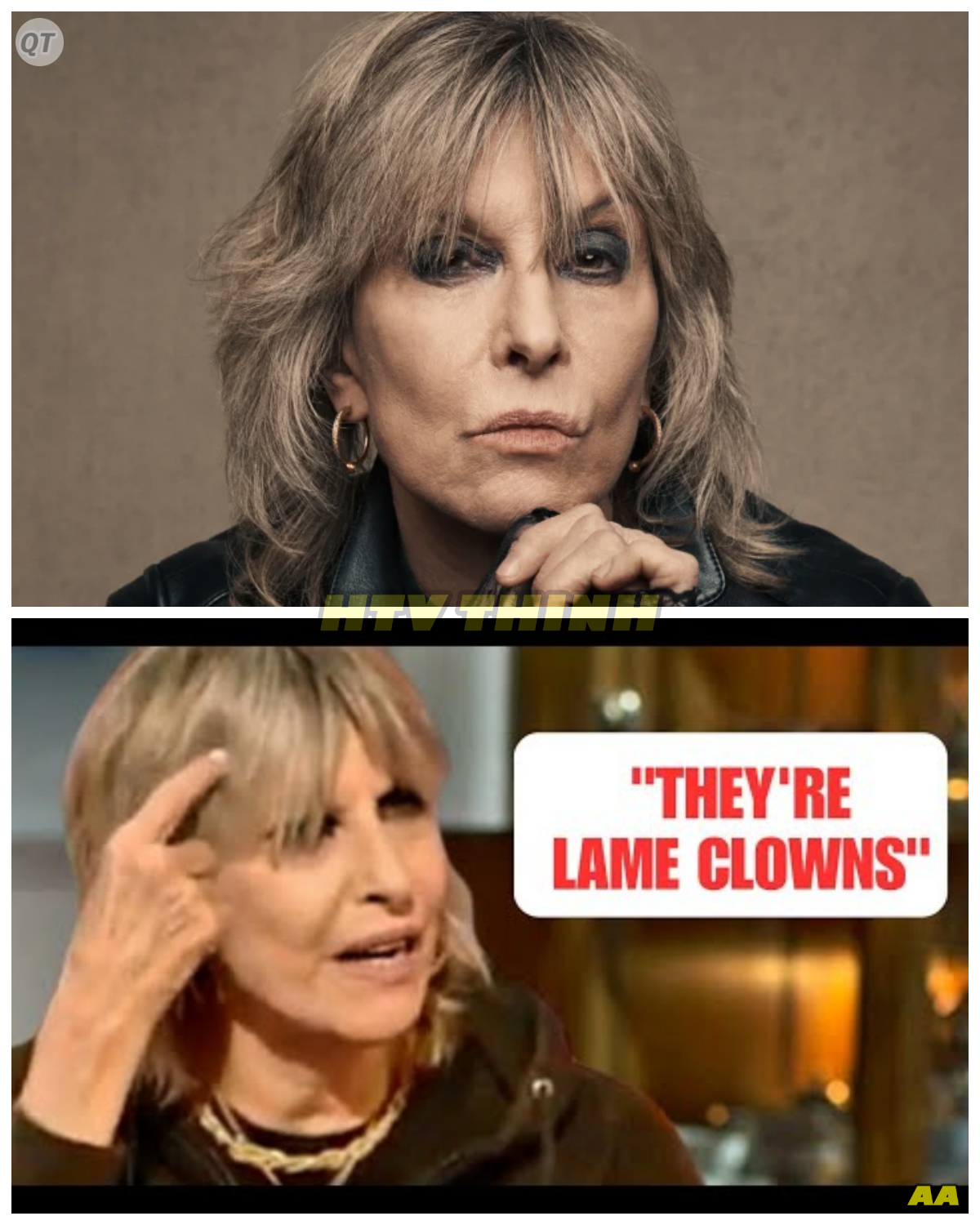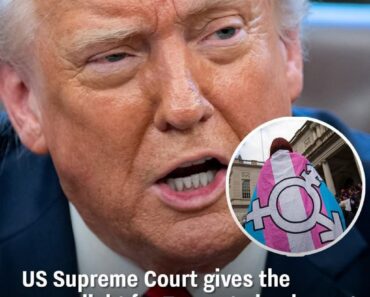Chrissie Hynde Names The 5 Bands She HATES Most
Posted by
–
Chrissie Hynde Drops Bombshell: The 5 Bands She Absolutely HATES and Why It Will Shock You

In the world of rock music, opinions run deep and passions even deeper.
Few voices carry as much weight and authenticity as Chrissie Hynde, the iconic frontwoman of The Pretenders.
Known for her raw honesty and unapologetic attitude, Chrissie has never shied away from speaking her mind.
Recently, she stunned fans and critics alike by naming the five bands she hates the most.
Her candid revelations have ignited fierce debates and left many wondering what could have provoked such strong feelings.
Chrissie Hynde’s journey in music is one marked by struggle, resilience, and a fierce commitment to authenticity.
She rose to fame with The Pretenders, a band that brought a unique blend of punk energy and heartfelt lyricism to the rock scene.
Her voice, both literally and figuratively, has been a beacon for those who value honesty over commercial polish.
This background makes her critiques all the more compelling, as they come from a place of deep understanding and experience.
When Chrissie named the bands she hates most, it wasn’t just a list of names—it was a declaration of her disdain for what she sees as the dilution of rock’s rebellious spirit.
She expressed frustration with bands that, in her eyes, have betrayed their original ethos or succumbed to commercial pressures.

Her comments highlight a recurring theme: the loss of rawness, anger, and genuine emotion in modern rock music.
One of the bands she criticized heavily was U2.
Once hailed as pioneers of rock with a message, Chrissie believes they lost their edge by preaching and moving away from their original sound.
She described Bono as insufferable, pointing to the band’s shift from raw rock to a more polished, less authentic form.
Another band on her list was Imagine Dragons.
She slammed their combination of high energy with what she called “non-committal TED Talk lyrics,” which she found stomach-turning.
For Chrissie, the essence of rock lies in its rebelliousness and emotional honesty, qualities she feels are missing in such bands.
The Pretenders themselves have faced criticism for becoming softer over time, especially after losing key members like Jimmy and Pete.
Chrissie acknowledged this but maintained that the band’s early work was rooted in real, raw experiences.
She contrasted this with bands that rely heavily on outside songwriters and cheesy ballads, like Aerosmith’s “Don’t Wanna Miss a Thing,” which she derided as emblematic of what rock should avoid becoming.
Her disdain wasn’t limited to just a few bands; it extended to a broader critique of the music industry’s commercialization.
Chrissie lamented how many bands have lost their original spirit in pursuit of mainstream success.

She sees this trend as a betrayal of rock’s core values—danger, rebellion, and emotional truth.
Despite her harsh words, Chrissie Hynde remains a figure of respect in the music world.
Her opinions, while controversial, are grounded in a lifetime of dedication to her craft.
She has written honest lyrics drawn from her own life, not dictated by corporate interests.
This authenticity is what makes her critiques resonate so strongly with fans who share her love for genuine rock music.
The reaction to her revelations has been mixed but passionate.
Some fans agree wholeheartedly, praising Chrissie for calling out what they see as the decline of rock.
Others defend the bands she criticized, pointing out their contributions and evolution over time.
The debate underscores the subjective nature of music and the personal connections listeners form with it.
Interestingly, some commentators noted a certain irony in Chrissie’s critique of overproduction given that some of her own later work was more polished than her early raw sound.
This has sparked discussions about the challenges artists face in balancing growth with staying true to their roots.
Chrissie Hynde’s candidness also shines a light on the pressures musicians face in an industry driven by trends and commercial success.
Her willingness to speak out against popular bands reflects her commitment to preserving rock’s rebellious heart.
Beyond the music, her comments reveal a deeper frustration with the loss of edge and danger in popular culture.
For Chrissie, rock music is not just entertainment—it’s a form of resistance and self-expression.
When bands lose that, they lose their soul.
This story is more than just a list of disliked bands; it’s a call to action.
Chrissie Hynde challenges listeners and musicians alike to demand more from rock music.

She urges a return to raw emotion, honesty, and the fearless spirit that defined the genre’s golden age.
Her revelations invite reflection on how music evolves and what it means to stay true to oneself as an artist.
They remind us that behind every song and performance lies a complex web of influences, struggles, and intentions.
In the end, Chrissie Hynde’s bold statements serve as a powerful reminder that music is deeply personal and that every artist’s voice matters.
Her critique of the five bands she hates most is not just about dislike—it’s about preserving the integrity of rock music for future generations.
This story will leave you questioning your own musical tastes and the state of the industry.
It challenges the notion of what it means to be “authentic” and pushes us to listen more critically.
Whether you agree or disagree with Chrissie Hynde, there’s no denying the impact of her words.
They reignite the conversation about the soul of rock music and the artists who shape it.
Her fearless honesty is a testament to the enduring power of rock as a force for truth and rebellion.
And for that, Chrissie Hynde remains a true rock icon—unafraid to speak her mind and fight for the music she loves





